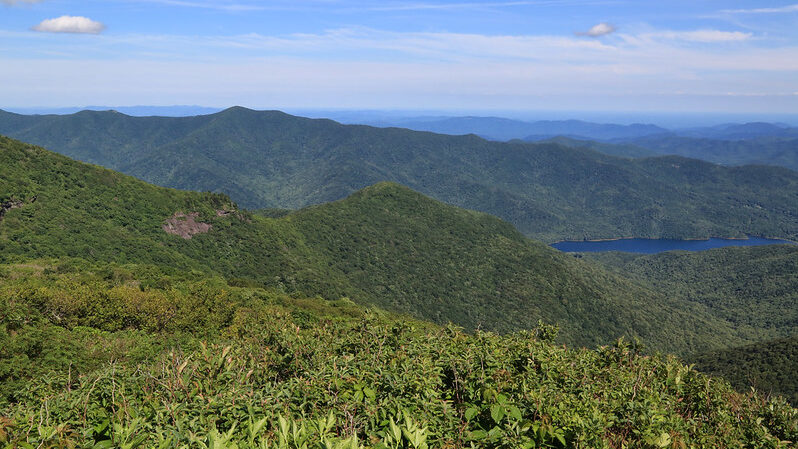Water, Water Everywhere: Adapting Water Control Operations and Floodplain Conservation Planning to Global Change

Project Information
Principal Investigator: Simeon Yurek, U.S. Geological Survey
Proposed Project Completion: September 2025
Implements Science Plan Theme: Adaptation
Co-Investigators:
Julie DeMeester, The Nature Conservancy
Charlie Stillwell, USGS South Atlantic Water Science Center
Barbara Doll, NCSU
Jack Kurki-Fox, NCSU
Danica Schaffer-Smith, The Nature Conservancy
Wilson Laney, NCSU
Mitch Eaton, USGS
Chuck Peoples, The Nature Conservancy
Brian Boutin, The Nature Conservancy
Overview
Global change processes are producing shifts in temperature, precipitation, and seasonal streamflow regimes across North America. Much of the floodplain hydrology in the U.S. is managed through water control operations, often implemented on short time scales (e.g., weekly decisions), in response to short-term changes in precipitation. This operational model does not account for potential long-term trends, such as increased recurrence or shifts in seasonal timing of high flow events within a year. Therefore, policies that only focus on short time scales and recent historic conditions may not perform as well under altered climate regimes.
This uncertainty in future floodplain conditions is concerning for a variety of environmental resource managers. Managers of floodplain forests are concerned with maintaining sufficient flooding to redistribute sediments. Fish and wildlife managers are concerned with maintaining sufficient habitat connectivity during important fish spawning periods. Finally, conservation managers are concerned with where to establish reserve lands or implement restorations to optimize connectivity of fish and wildlife migratory corridors.
To address these concerns, the U.S. Army Corps of Engineers’ Sustainable Rivers Program (SRP) was developed to determine actionable strategies at reservoirs for improving river ecology throughout the country. The overall goal of the SRP is to maximize ecological benefits while maintaining authorized purposes of the infrastructure. In North Carolina specifically, the Nature Conservancy (TNC) and partners invest in restorations that target aquatic connectivity and are concerned with providing a high value of ecosystems services far into the future.
This project will examine an ongoing collaboration in North Carolina’s Roanoke River basin, a flagship example of conservation in action. Using the Roanoke watershed as a case study, the project team will develop transferable products that can be adapted and applied across river basins. Quantitative, scenario-based modeling will be developed using existing, publicly available models that are commonly specified for reservoirs, to assess ongoing climate change, as well as key impacts, uncertainties, and risk to stakeholder values. These climate change projections will greatly benefit management decision making and support environmental management initiatives such as land acquisition, land management, and restoration work and water management, as well as support the National SRP process. The proposed work will analyze climate change impacts at the Roanoke reservoir through 2099, connect those findings to floodplain and fisheries health, and aim to help the Nature Conservancy (and other landowners) and the SRP manage their resources.
